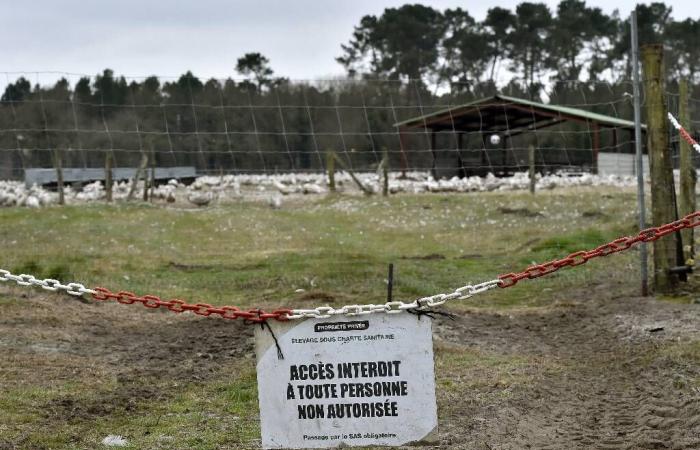
The decision has been made “considering the strong and persistent dynamics of infection in migration corridors and the spread of the virus by these migratory birds passing through mainland French territory”.
That “aims to strengthen surveillance and prevention measures”details the text which comes into force “the day after its publication”.
The epizootic risk to which poultry and other captive birds are exposed in the event of infection of wild birds with a highly pathogenic avian influenza virus (HPAI) is classified into three categories, “negligible”, “moderate” and “high”.
In case of risk “pupil”, poultry are notably “sheltered and their food and water are protected” in farms with more than 50 birds. Poultry and birds are “confined or protected by nets” in the smallest.
In Europe, the avian influenza virus has been detected in 24 countries and the number of outbreaks is increasing, especially in Hungary, according to the latest weekly bulletin from the French animal health epidemiological surveillance platform.
The bulletin identifies a “a strong infection dynamic present since the end of September and increasing in wild birds”.
In France, in total, “six outbreaks of poultry, two outbreaks of captive birds and ten wild cases” have been identified since the start of the season.
The avian flu epidemic, which is more widespread in America, Europe, Africa and Asia, affected France from 2015 to 2017 and then almost continuously since the end of 2020. The country has euthanized tens of millions of poultry in recent years. recent years. The economic losses amount to billions of euros.
France remained at a “high” risk level from December 2023, before it was lowered to “negligible” end of April 2024. It was raised to “moderate” on October 16.
To break this spiral, the government has decided to make vaccination compulsory in farms of more than 250 ducks (excluding breeding ducks) at the end of 2023. The 2024-2025 campaign, 70% supported by the State, was launched at the beginning October in France.





